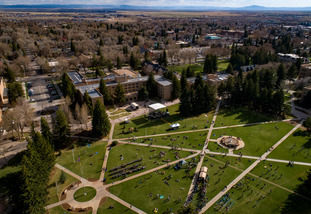Lab members
Principal Investigator Dr. Sean McCrea
My current research interests broadly focus on the interplay of motivational and cognitive processes. Our laboratory is currently focusing on defensive behaviors in a variety of contexts, particularly self-handicapping behavior and responding to crticism. Other areas of research interest include phases of goal-pursuit, behavior change, and counterfactual thinking.

Matthew Sherrin-Helm, M.S.
Research interests
Intergroup criticism
Gamification
Intrinsic interest

Mandy Alexandre, B.A.
Research interests
Academic achievement among members of vulnerable groups
Self-handicapping

Gabe Beratio, B.S., M.A.
Research interests
Counterfactual thinking

Current Research Activities
Self-handicapping in stigmatized groups
Mindset model of action phases
Responses to group criticism
Counterfactual thinking
Science advocacy

Recent Publications:
Public shaming as a form of deterrence for transgressions involving harm to others
Grant Activity:
2022-present RAISE: IHBEM: Understanding and Predicting Behavioral Responses to Epidemic Risks and Control Policies: Implications for Epidemiological Models and Policy Design, Co-PI, NSF
2017-2020 A Kinder, Gentler Technology: Enhancing Human-Machine Symbiosis Using Adaptive, Personalized Affect-Aware Systems, PI Domen Novak (UW), NSF 1717705
2015 Treatment noncompliance as a form of self-handicapping behavior, University of Wyoming (PI)
2014 Overcoming collective defensiveness with implementation intentions, University of Konstanz (collaboration with PI Dr. Lukas Thuermer, University of Konstanz)
External Research Collaborators:
Dr. Peter M. Gollwitzer, New York University; University of Konstanz (Germany)
Dr. Edward R. Hirt, Indiana University
Dr. Lukas Thuermer, Paris Lodron University, Salzburg (Austria)
Dr. Frank Wieber, Zurich University of Applied Sciences (Switzerland)


